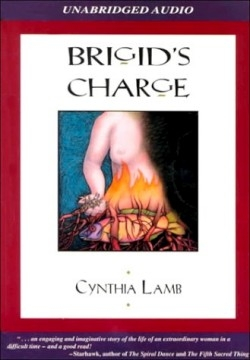Brigid's Charge
In 1704 England, the work of “wisewomen” gives way to the emerging class of male physicians who seek to supplant, by decree or by force, these folk-healers, herbalists and midwives. Deborah Smith, the last in a long line of pagan healers, escapes to the fledgling colony of New Jersey to meet and wed the eldest son of the prosperous Leeds family. Her grandmother hopes Deborah will continue the traditions of her family in the New World, free from the persecution that she and others have to face in England.
When Deborah arrives in New Jersey, she is relieved. Her husband-to-be pleases her, and his Quaker brethren, known for their tolerance, accept her as one of them, asking only that she raise her children in the Society of Friends. People in the wilderness town of Leeds value her healing skills. She proceeds with her plans to have a daughter who will carry on the tradition of her family, a lineage that stretches back into the reaches of time, all the way to the Goddess Brigid.
Deborah bears twelve children, all of whom live, a rarity in the early 1700s. Her family’s farm prospers. The people of her community call for “Mother Leeds” when they are ill or hurt. The birth, however, of her thirteenth child, when she is well past childbearing age, shatters the peace of the people of Leeds. For Deborah has given birth to the “Leeds Devil.”
This richly detailed work is filled with the author’s meticulous research on the period, as well as her use of family myths and papers associated with the “Leeds Devil,” later known as the “Jersey Devil.” Cynthia Lamb is descended from Deborah Leeds, and brings a close and personal view of her ancestor’s life to the fight for survival of the culture of women healers and their pagan spirituality in the volatile mix of religious freedom and cultural intolerance that formed the New World.
Reviewed by
Carol Lynn Stewart
Disclosure: This article is not an endorsement, but a review. The publisher of this book provided free copies of the book to have their book reviewed by a professional reviewer. No fee was paid by the publisher for this review. Foreword Reviews only recommends books that we love. Foreword Magazine, Inc. is disclosing this in accordance with the Federal Trade Commission’s 16 CFR, Part 255.

